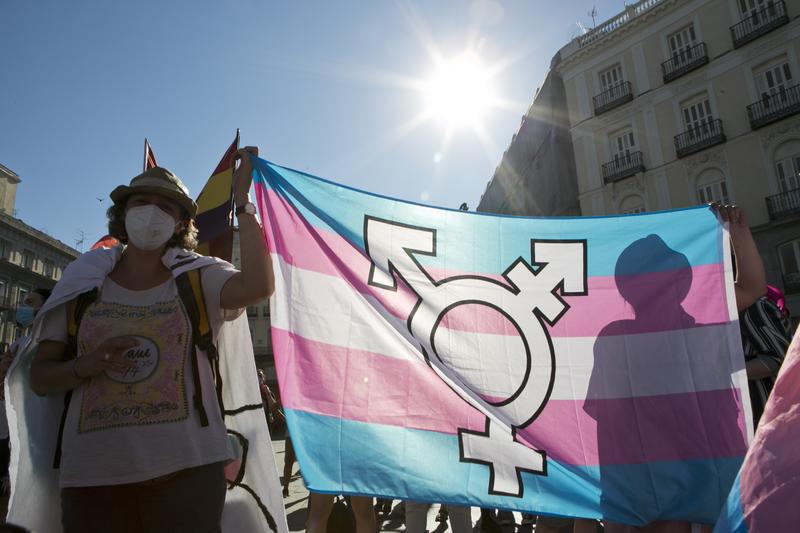Trans* and non-binary survivors of sexual abuse in Spain: let's organise!
We are not just a few, but there are no specific services for us, nor specific materials in Spanish. Our situation is very different from that of cis survivors of sexual abuse.
I am a non-binary trans survivor of childhood sexual abuse. And there are many of us in Spain, although I don't know of any research that talks about us.
According to the US NGO FORGE, between 50% and 66% of trans* people have experienced sexual abuse or violence at least once in their lives, many several times. If we accept that, according to El Español, "academic publications estimate that the trans and non-binary population ranges between 0.1% and 2% among adults", this means that between 47,430 and 950,000 people in Spain are trans and non-binary, and between 25,000 and 475,000 are trans* and non-binary survivors of sexual abuse.
We are not a small minority, but there are no specific services for us, nor specific materials in Spanish. Nothing. Absolutely nothing. Or, do you know of any specific resources for us?
Our situation is very different from that of cis survivors of sexual abuse. As a guide for trans* survivors of sexual abuse by the US-based NGO FORGE says, "as a transgender or gender non-conforming survivor of sexual abuse, you may feel that your experience is too complex for people - possibly even you - to understand. Sexual assault already inextricably mixes issues of sex, gender, body image, power and self-image without the complication of gender identity issues; if you add this, people may not seem to understand. And it may be true that you haven't found people capable of understanding it before".
To this we have to add that there are few psychologists trained to care for trans* and non-binary survivors of sexual abuse and, if we rely on public mental health, adequate care is highly unlikely, and we cannot choose who (if anyone) treats us. If we are fortunate enough to be able to afford to pay a psychologist, we are also not guaranteed to find adequate care. Unfortunately, there are still many psychologists who not only have no training in trans* or gender identity, but even worse, there are still many who pathologise us, who think we have a mental health problem because we are trans* or gender non-conforming.
In a way I feel lucky. I found a psychologist with training not only in sexual abuse, but also in gender identity as well as trans* issues, but I also speak English and I found materials in English that helped me in my own process of dealing with or learning to live with my trauma. It was very helpful for me to be able to draw on these resources. But what if you don't speak English? And does it make sense that we have to use resources in other languages, from other countries and for other realities? I don't think so.
Services for survivors of sexual abuse generally focus on women survivors. This is understandable, given that what exists today is the result of the feminist struggles of the last decades. When I first looked, more than six years ago, I didn't even find services for male survivors of sexual abuse. Services for trans* and non-binary people, no way.
It's time to organise, to speak out about our realities as trans* and non-binary survivors of childhood sexual abuse, and to demand care tailored to our specific realities and needs. I would like to hear from you. What has helped you in your process? What was missing? What do we need?
I am not a psychologist. This is not about forming a group focused on mutual support for trans* and non-binary survivors of sexual abuse. Rather, it's about organising, about demanding the mental health care we deserve, not second- or third-class care. It is about putting on the table that we exist, trans* and non-binary survivors, and that we have needs. We are survivors. We have rights. We demand nothing less than adequate care.
https://www.andreaspeck.info/contact
Published (in Spanish) in El Salto, 25 November 2022, https://www.elsaltodiario.com/violencia-sexual/supervivientes-trans*-y-nobinaries-de-abuso-sexual-nos-organizamos

